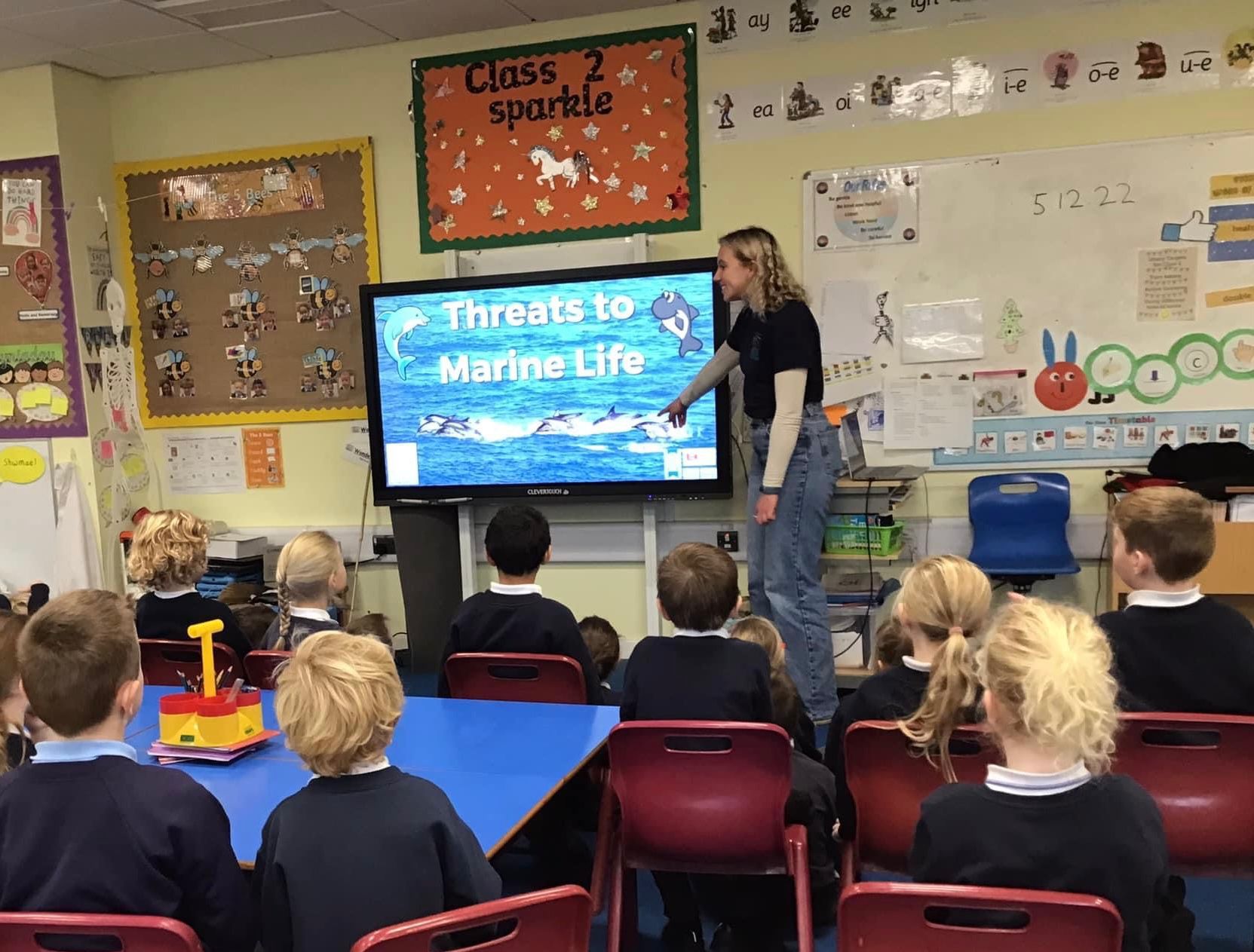In our Graduate in Focus series we look at the achievements of our graduates who have excelled in marine science around the world since studying with us. Today we meet Nadia Tomsa, BSc Marine Biology graduate, who is now an Education and Outreach Officer at Sea Trust Wales.
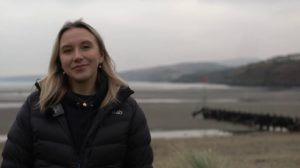
Hi Nadia, thanks for joining me! Can you tell us a bit about your time at the University of Exeter?
I studied BSc Marine Biology with a year abroad. In my third year I went across to Tasmania, Australia, which was unfortunately cut a bit short because of the pandemic, but other than that was amazing. Whilst I was there, I was able to do some Antarctic studies and that is probably one of my highlights of my time at university. After that I came back to Falmouth for my final year and graduated in 2021. My undergraduate research project investigated the compatibility of shark encounter tourism in shark sanctuaries. I analysed tour operator websites and determined how they met the WWF Criteria for Responsible Shark and Ray Tourism, such as whether the tour operator adhered to a code of conduct for shark welfare.
Wow, that sounds great! What have you been doing since then?
Straight after I graduated, I stayed in Cornwall for a little while, working in a café and saving up to go travelling. In my final year of university, I was supposed to go to the Galapagos, but this was cancelled due to the pandemic. Instead, some close friends and I decided to plan a trip ourselves. I worked for 5-6 months in Cornwall and went out to Galapagos in January of last year for a month, followed by several months of travelling around Central America. Then I came back home to Wales and started to work for Sea Trust, which is where I am now.
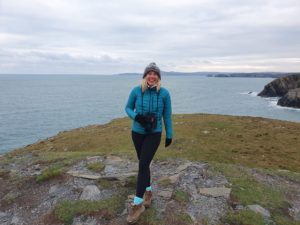
Tell us more about your current role:
Sea Trust Wales is a small marine conservation charity based in Fishguard, Pembrokeshire. I am the Education and Outreach Officer, which covers a variety of things. A large part of my role is within the FINtastic Fauna project. This concentrates on Pembrokeshire’s local marine wildlife, with the aim to get local people connected to wildlife conservation and to raise awareness of the wildlife we have here. We carry out porpoise photo-ID surveys which I am involved with, plus a seal photo ID project alongside other megafauna surveys.
My role consists of working a lot with local schools. We run enrichment courses where kids come to us and learn how to survey wildlife and develop their identification skills. We also visit schools – I have created a programme of the threats to marine life, where we visit schools to talk about our local marine life and the threats they face, plus how the kids can get involved in protecting them. This goes all the way from 3/4-year-olds in reception, to students at the end of secondary school. I have also set up a free marine biology club for 10–14-year-olds which runs weekly. We cover a range of subjects, teaching them numerous scientific research skills and survey methods and interesting marine biology facts, to develop their passion for conservation.
One of our other projects deals with recycling end of life fishing gear. We get the kids involved in helping us to sort and weigh the fishing gear, before we then send it down to Waterhaul in Cornwall who use the fishing gear to create products such as sunglasses and litter pickers. This is a great way of involving young people directly with marine conservation, giving them hands-on experience with current issues. In this role I also run the social media and do a lot of publicity and setting up events, where I try to get the local community involved as much as possible.
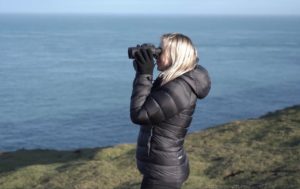
What would you say the skills/experiences are from your course at the University of Exeter that you’ve taken into your current role?
I think one of the main skills I’ve taken from my degree, through writing discussions and popular science articles, is the ability to explain difficult scientific concepts or research in a way that is accessible to a wider audience. I’ve learnt to synthesise facts and to adapt how I am speaking to suit different ages. This has been really useful in my role and probably helped me to get this job. I also worked throughout my time at university. I was a student ambassador and then a senior student ambassador. One of the main reasons I was able to get my current role was likely because of the ambassador position, I was involved with environmental education, such as week-long science residentials. The residential was carried out online due to the pandemic, but students from local schools participated in online discussions and a range of activities regarding endangered species which led to them creating a group presentation. I think this involvement in environmental education through this programme helped me to secure my current position.
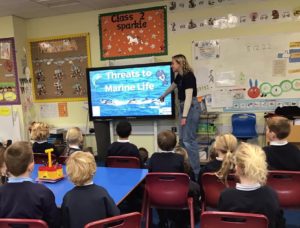
Did you do any volunteering outside of your studies?
I did. I completed the British Divers Marine Life Rescue Course in the first year and carried out some volunteering with them throughout my time at university.
Would you have any advice to give to current students who might be wanting to pursue a similar career?
The Student Ambassador Scheme is an amazing opportunity that Exeter offers, so I would recommend taking advantage of that while you are there. I would also encourage just talking to your lecturers lots and asking loads of questions about how they got to where they are, because it’s really inspiring. Sometimes, hearing from your lecturers that they weren’t sure what they wanted to do when they were in your position can help to take the pressure off a little bit, and can help you to figure out your path after university. Whilst I was at university, I didn’t know I would want to go into the education and outreach side of things. I hadn’t really thought about going down that road and working with young people. With the student ambassador role and working in schools, I realised I really enjoyed it and loved the science communication aspect also. I would recommend getting involved in as much as you can and taking any opportunities, as you never know when the experience will come in handy down the line.
Have you got any plans for the future?
I am really looking forward to continuing my work with Sea Trust. Currently I’ve been working 21 hours a week and doing some other jobs alongside, but from April I will be working with them full-time. We’ve got lots of exciting projects coming up. I really want to continue down the route of outreach and working with communities and young people. I also want to keep doing more science communication as I think it’s important that we get everyone on board and involved. The current scientific research that is coming out is amazing, but it will not make any headway with conservation on a large scale unless we have the community backing, and the younger generations to come through and continue it.

